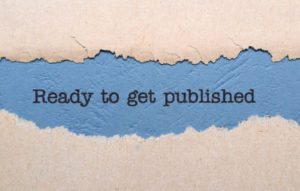Today’s post is a bunch of helpful publishing tidbits offered by Dave Bricker on The World’s Greatest Book. While a hodgepodge offering, each bit of wisdom offered is worth the read. What publishing advice would you give a new author?
~ * ~
Publishing Advice – Practices & Principles
 The following publishing advice is based on my own experiences and those of my clients. I hope you find it valuable and encouraging, even if it changes your expectations.
The following publishing advice is based on my own experiences and those of my clients. I hope you find it valuable and encouraging, even if it changes your expectations.
I’ve written and published 6 books, and I’m working on my seventh. I’ve guided many remarkable people through the process of telling their remarkable stories, and served as editor, typesetter, cover designer, web developer, and marketer. I love writing, publishing, and book design, but the least pleasant part of my work involves delivering “straight talk” that has popped many a shiny bubble. My experiences in publishing have been overwhelmingly positive, but I routinely hear from writers who have made expensive mistakes. Others are frustrated and stuck in the writing process. The good news is that with a bit of research, the right resources, and a few reality checks, problems can be avoided. You probably can’t do it yourself, and you probably can’t do it for free, but you can publish an excellent book and find the process rewarding.
Here are few snippets of writing, book design, and publishing advice:
Of course it sucks; that’s why it’s called a “rough” draft. Keep writing.
Many great books are terrible products. Many terrible books are great products. Write for the marketplace or write because you have something to say, but know where your book lies on the spectrum between art and business. Adjust your expectations accordingly.
Read the full post on The World’s Greatest Book
~ * ~
If you liked this article, please share. If you have suggestions for further articles, articles you would like to submit, or just general comments, please contact me at paula@publetariat.com or leave a message below.

